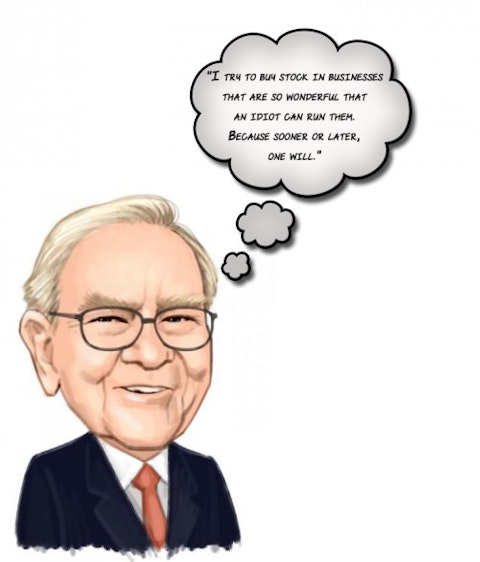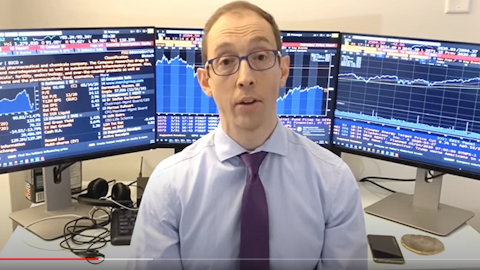You can’t beat the market by actively picking stocks, do yourself a favor and invest in index funds. How many times in the last decade have you heard this “advice”? Even the legendary billionaire investor Warren Buffett lectured investors about the “wisdom” of investing in index funds. Last month, when the S&P 500 Index plunged nearly 30% in a matter of weeks, I bet your financial advisor told you not to panic, stay the course and not sell.
Do you know what we did? We told our investors that a recession is coming and asked them to short the market to protect their portfolios. And that was at the end of February. After the stock market bottomed, when Wall Street analysts were telling everybody that “recent lows will be retested”, we told our subscribers to cover their shorts and buy, buy, buy.
Before this coronavirus bear market, when the S&P 500 Index was riding high, I read countless articles about how hedge funds as a group can’t beat the market. Those financial journalists are idiots. Hedge funds aren’t magicians. It is very difficult to beat the S&P 500 Index that is running high on steroids (that’s what I call the 2019’s Fed induced stock rally) with a portfolio that is only 50% long (or %50 hedged). During the first quarter of 2020, S&P 500 Index lost 19.4% and hedge funds beat the market by a huge margin. Guess what the same journalists said this time? Nope, they didn’t praise hedge funds for beating the market, they criticized them for delivering negative returns.

Here is an objective analysis of hedge funds. Hedge funds are good at stock picking, but they couldn’t beat the market in 2019 for two simple reasons. First, they are hedged. Their net beta exposure is around 50%. So, they can only return about half the market’s return (plus some alpha and minus the fees). Second, they charge an arm and a leg for their services. Investors didn’t mind paying 2% of their capital and 20% of their returns as fees when hedge funds were returning 30% per year in the 90s. However, this fee structure is ridiculous in today’s market. There are only a few hedge fund managers who deserve this kind of compensation scheme. One of them is Michael Castor. When the S&P 500 lost nearly 20% in Q1, Castor’s Sio Capital returned more than 7% after fees. You can watch our latest video about Dr. Castor’s latest coronavirus analysis below:
Hedge funds as a group charge too much for their stock picking services. Fortunately, there is a work around. You don’t have to pay hedge funds an arm and a leg for their stock picking skills. Once a quarter, all large US equity hedge funds have to disclose their portfolio holdings in US public equities in 13F filings. We get to see which stocks they bought, sold, and how many shares of each stock they held in their portfolios. This is very valuable data.
Insider Monkey tracks more than 1000 hedge funds. Since the end of 2018 we have been reporting the names of top 30 hedge fund stocks every quarter.
Now, I am going to share some return numbers that you are going to find hard to believe. That’s understandable. Even uncle Warren Buffett has been telling you to stick with low cost S&P 500 Index funds, and journalists have been bashing hedge funds left and right, so why should you expect hedge funds outperform the market?
Here are the numbers. S&P 500 Index ETF (SPY) returned 5.7% since the end of 2018. Not too shabby given that we are in the middle of a recession. So, if you listened to Warren Buffett and invested $10000 in SPY, you would have made $570 in 5 quarters.
The top 10 stocks among hedge funds returned 26.6% since the end of 2018. If you subscribed to Insider Monkey’s free email alerts and invested $10000 in hedge funds’ top 10 stocks, you would have made $2660. Ask yourself why Warren Buffett isn’t investing Berkshire’s $100+ billion cash in index funds, and instead hired two former hedge fund managers to succeed him.
The top 10 hedge fund stocks also outperformed the S&P 500 ETFs by 9 percentage points this year and 10.1 percentage points last year. Basically, hedge funds’ top consensus picks were able to beat the market in up and down markets.
You can check out the entire list of top 30 hedge fund stocks here. We already published an article about the top 5 hedge fund stocks. In this article we will share the names of the remaining 5 stocks. At the end of December these stocks were Alphabet Inc (NASDAQ:GOOG), Visa Inc. (NYSE:V), PayPal Holdings (NASDAQ:PYPL), Mastercard Inc (NYSE:MA), and Bristol-Myers Squibb Company (NYSE:BMY).
The list of top 10 hedge fund stocks don’t change dramatically from quarter to quarter either. Bristol-Myers Squibb and PayPal Holdings weren’t among the top 10 at the end of September, but the remaining 8 stocks were in this list. Alphabet Inc. (NASDAQ:GOOG) never left the top 10 stock list since we started tracking it nearly 10 years ago.
Visa Inc. and Mastercard Incorporated have been among the top hedge fund stocks for a very long time. If investing and following 10 stocks is too much work, then you can focus on the top 5 to 8 stocks to get the benefits of diversification and enjoy better than market returns.
Disclosure: No positions in these 5 stocks because I search for even more promising stocks than these 5 hedge fund stocks and recommend them in Insider Monkey’s premium newsletters. I have a long position in SPY which I bought in 2009 and don’t want to sell because of capital gains tax. This article is originally published at Insider Monkey.





